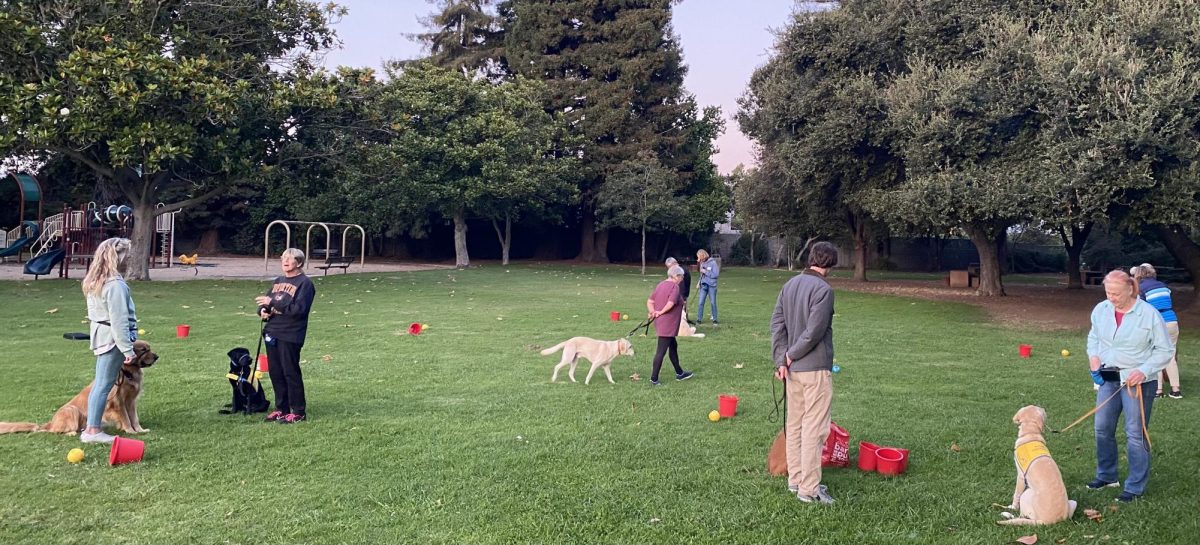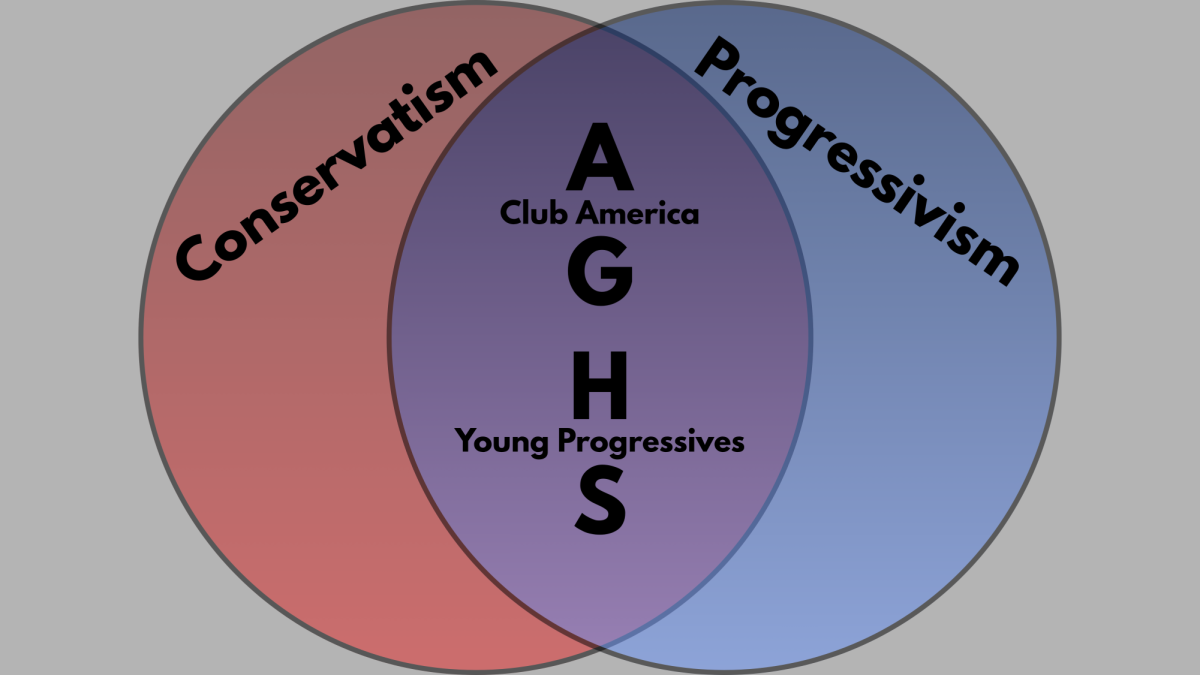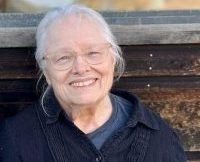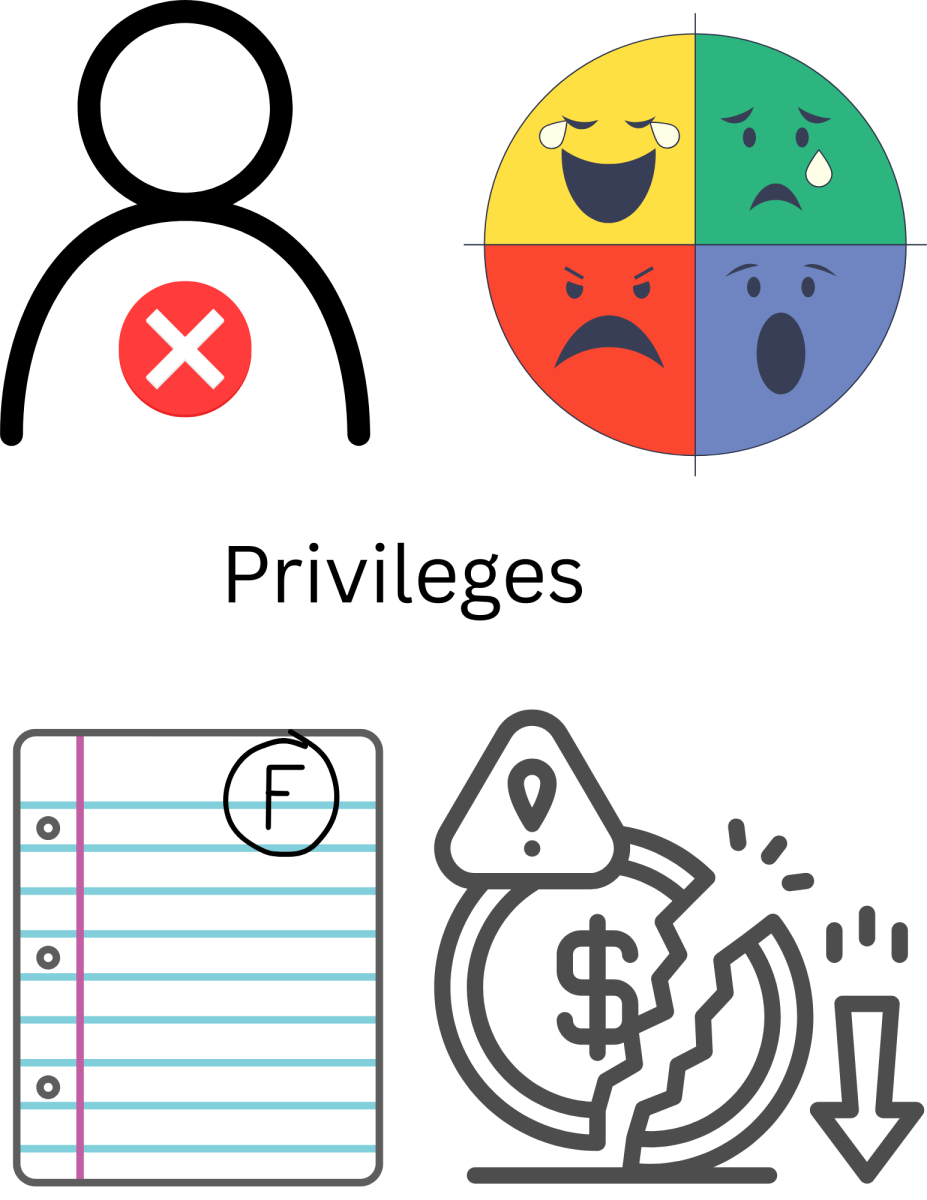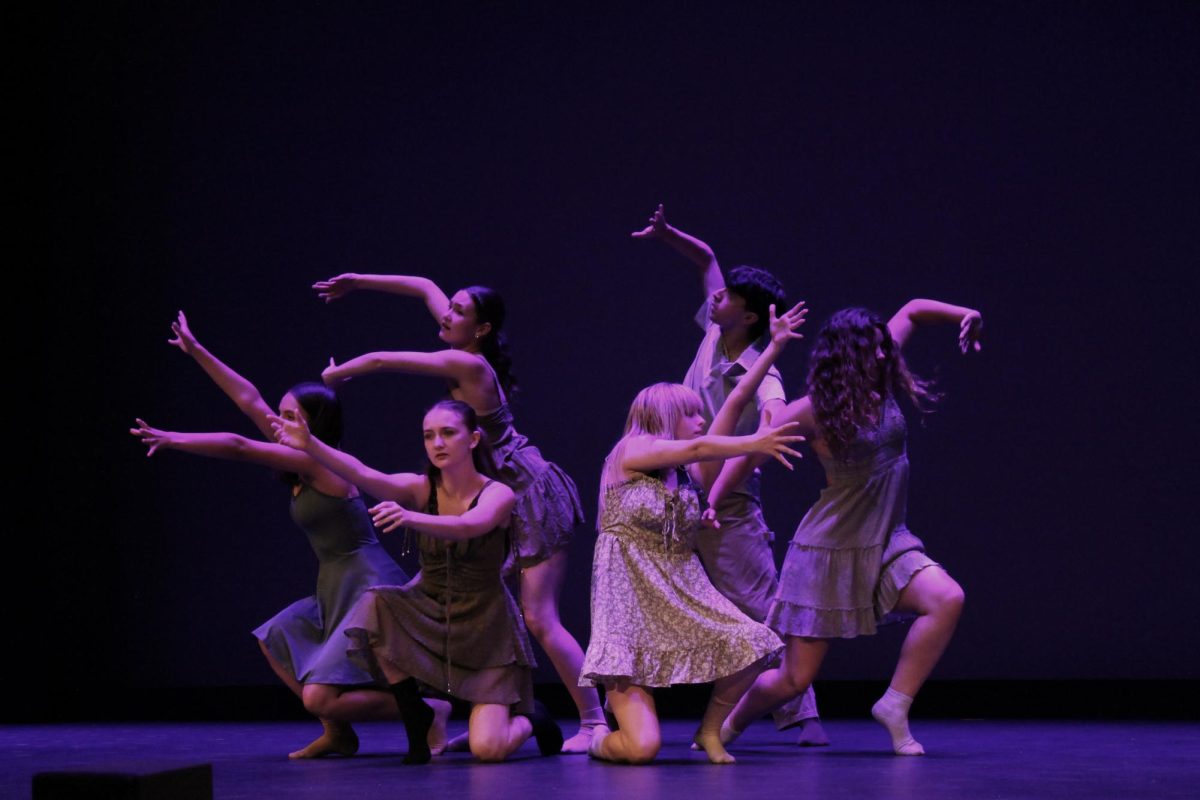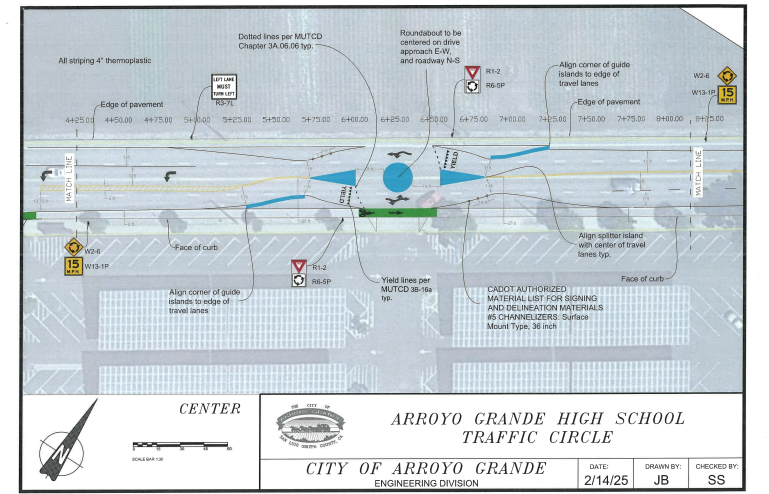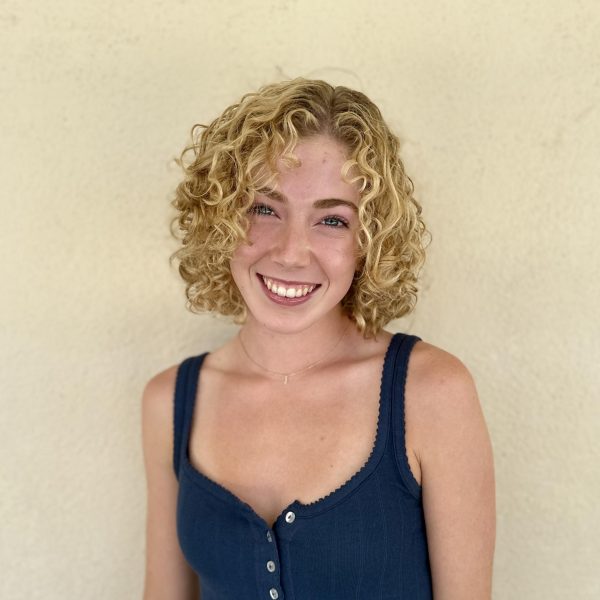Vera Hagler stands attentively in the grassy area of Strother Park during her weekly training class. Armani, a 16-month-old labrador retriever/golden retriever cross, sits dutifully next to her.
Hagler is part of a local service dog training program unofficially known as “SLO Area Puppy Raisers.” This local program is associated with Canine Companions, a non-profit organization that trains and provides service dogs, facility dogs, and therapy dogs for adults, children and veterans with disabilities.
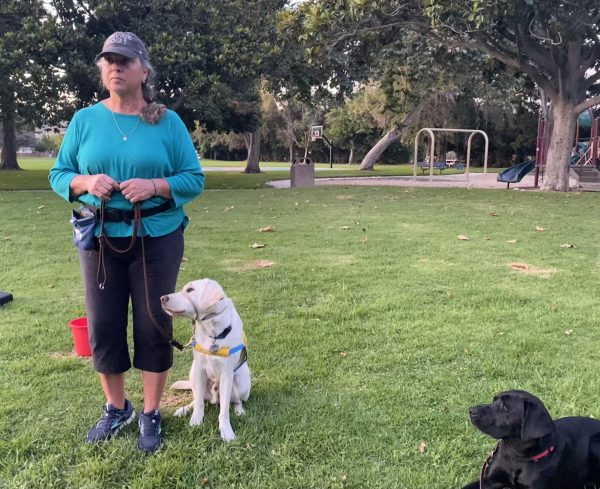
Before a person with a disability can receive a service dog, the dog must go through intense training, as well as medical and behavioral testing. The first year and a half of training is spent with a volunteer trainer who is in charge of introducing the puppy to new environments. This exposure prevents future anxiety or agitation in unfamiliar settings. Additionally, the volunteer teaches their puppy required commands.
“Every puppy is different, so there’s always new challenges,” trainer Mary Hundertmark said.
The dogs gathered at Strother Park may go on to become life-changing companions. But for now, they are still puppies.
“They are puppies, because we get them at 8 weeks old. And [we’re] house training them,” Hagler said. “[We’re] trying to get them to sleep through the night, or [we] are cleaning up messes. That part’s hard. But it goes quick, and we have a lot of support, so that’s really helpful.”
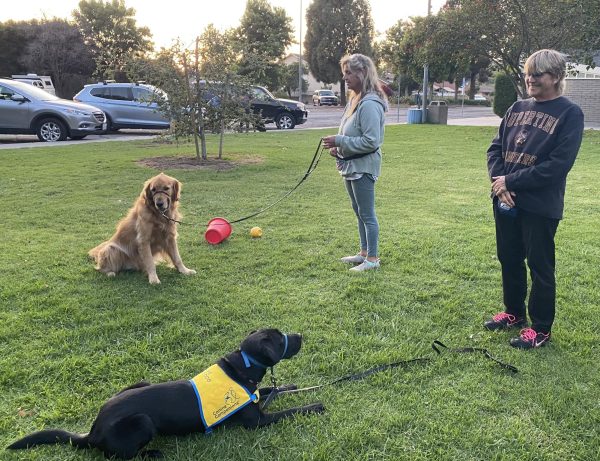
The volunteers work hard to make their dogs successful. Having patience and consistency is crucial.
“So much goes into the first two years of life that can set them up for success later on,” trainer Julie Pattaphongse said.
Several different elements motivated the trainers to take on this responsibility. Head of the San Luis Obispo program, Stephanie Ruggerone, received her inspiration over 40 years ago.
“I was at a seminar, working for a veterinarian, and one of the speakers was a trainer,” Ruggerone said. “I had just gotten a golden retriever of my own and had been training my own dog for the first time, and that just got me totally hooked. I’ve been doing it ever since.”
Ruggerone has been a long time friend of Hagler and Hagler’s window into the organization.
“After our pet dog died, and my children got older, and I had more time, I decided this was going to be my volunteer thing,” Hagler said.
Armani is Hagler’s second dog; her first one is Wynonna, a two-year-old labrador retriever/golden retriever cross. Wynonna was not selected to move on to the next phase of the program after demonstrating behaviors such as barking and sensitivity to touch. Nonetheless, training Wynonna was a learning experience for Hagler.
“With Armani, with the second dog, I was more confident,” Hagler said. “I learned from my friends who have all raised puppies before me. And so they shared their knowledge and experience, and that has helped me learn things.”
These local trainers found a sense of community in their program and speak highly of Canine Companions.
“It’s such a good cause, a nice organization,” trainer Karen James said.
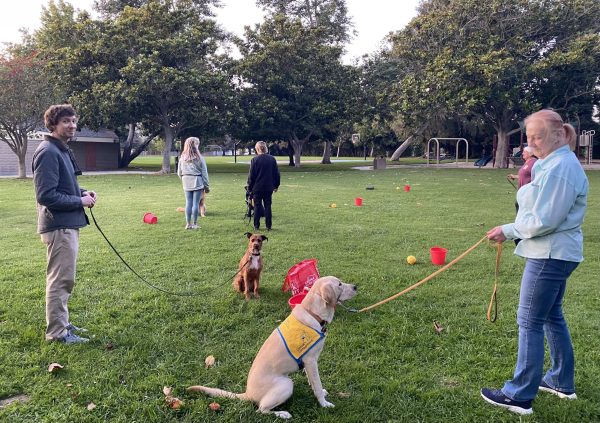
(Julia Sidun)
However, the happiest accomplishments often bring a little sadness.
“I think the hardest part right now, I guess, is saying goodbye,” trainer Sandy Levoe said, referring to her dog’s graduation.
Their passion for the cause and their love of dogs keeps these trainers in the program. For them, seeing how their service dogs change people’s lives is extraordinary.
“I’d do it a hundred times over,” trainer Jodi Isaacs said. “It’s amazing to see what these dogs do for these people.”

